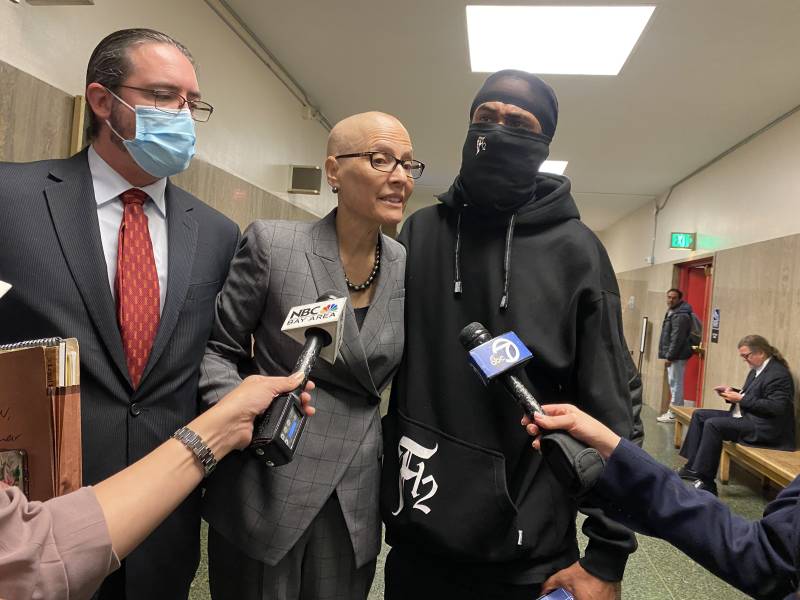San Francisco Superior Court Judge Loretta Giorgi officially dismissed charges against San Francisco police officer Christopher Samayoa, who shot and killed carjacking suspect Keita O’Neil during a chase in the city’s Bayview neighborhood in 2017.
The case, initially brought on by former District Attorney Chesa Boudin, was the first homicide prosecution of a police officer for an on-duty killing in San Francisco history. District Attorney Brooke Jenkins earlier this year moved to dismiss the case brought on by her predecessor.
The judge’s decision came after California Attorney General Rob Bonta announced Thursday that he will not prosecute the former officer. In a letter to District Attorney Brooke Jenkins on May 18, Bonta asserted the charges against Samayoa “cannot be proven beyond a reasonable doubt.”
Family, friends and community members expressed outrage over the decision on Friday.
“I feel powerless. I am really worried about the rest of our Black and brown men who live in the Bayview area because this is a license to kill,” said April Green, O’Neil’s aunt, on Friday outside the courtroom where her nephew’s case was dismissed. “He’s given an okay now for officers to have excuses and justify murdering our Black and brown men.”

